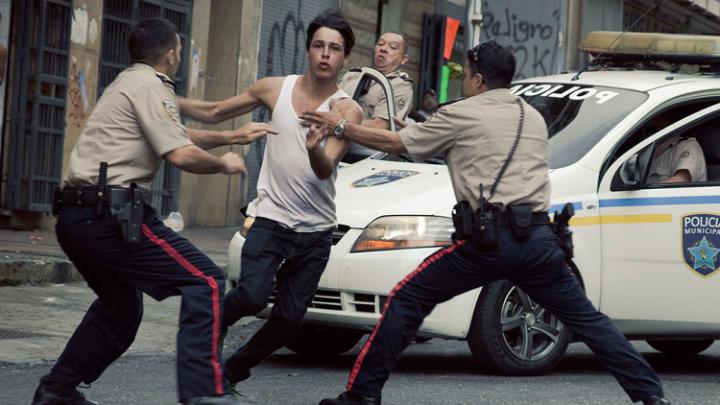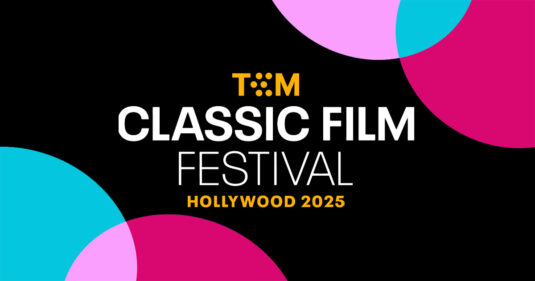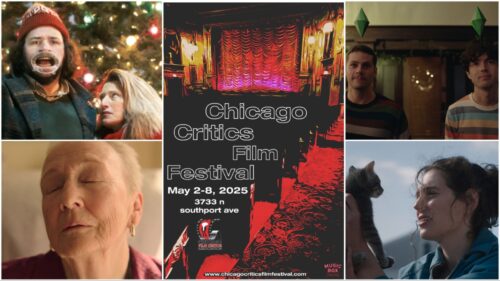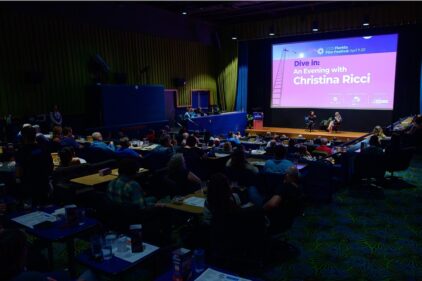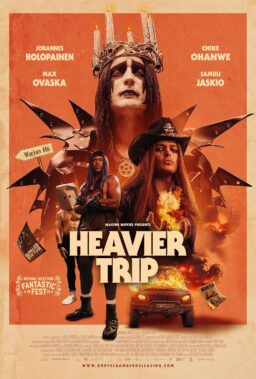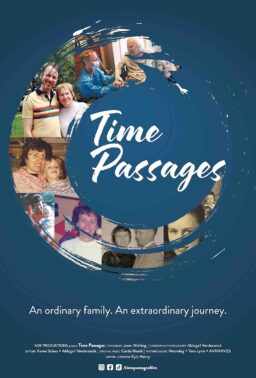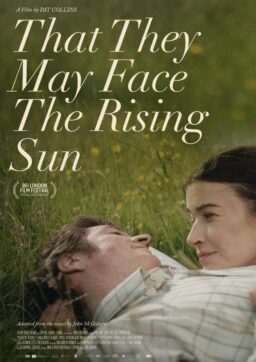One thing I wasn’t particularly good at when attending this
year’s Venice Film Festival was picking up on “buzz.” Granted, I don’t think
that’s something I was ever gifted with—I always lost Premiere’s Oscar pool,
and badly—but, unless I’m mistaken, the way the Venice festival is set up almost
discourages the very creation of buzz. At Cannes, on the mezzanine of the
Palais where all the competition films screen, there are two walls of press
“mailboxes,” where working journos invariably congregate after films—I heard
more than one festival vet refer to that scrum as “the clusterf**k.”
In that
environment it was super easy to pick up the general critical consensus on any
given film, which one would then measure up, if one were so inclined, against
the projected vicissitudes of the festival jury. In Venice, the festival’s
press work rooms and press conference rooms are both on the third floor of the
casino, removed from the screening venues. The work room, with stools and
chairs and computer-charging stations, feels more like a library reading room
than a message center. Publicists aren’t permitted anywhere near it—they have
stations at which to hand out their materials on the floor below. It feels very
studious, scholarly even. Hence, not a place to catch much by way of buzz.
In any event, it turns out that with the exception of
Charlie Kaufman and Duke Johnson’s exceptional “Anomalisa,” which I wrote about in my last installment, I did not see a single one of the jury prize winners.
Nor did I catch any “buzz” about them. The Golden Lion went to the Venezuelan film “From Afar,” directing award
went to Pablo Trapero for the Argentine film “El Clan” and…there’s more, but
unfortunately I didn’t see any of them so I can’t really intelligently discuss
any of them.
I am a little abashed by this. But I wasn’t slacking,
honest. Let me tell you about the event that got me brought out to Venice in
the first place. I was invited by the festival to participate in a panel called
“Biennale College Cinema: The International Horizon.” The Biennale College is a
festival program that just completed its third year. Its mission is to produce
three feature films budgeted at 150,000 Euros each and screen and promote those
films at a subsequent Venice festival. As you might imagine, and as one of the
program’s directors Savina Neirotti explained in some detail at the panel, the
submission process is grueling and the selection process is intense. There’s no
specific thematic criteria set for the work, though, which means that it was an
interesting coincidence that the three films presented this year all were about
youth.

Polish director Kuba Czekaj’s “Baby Bump” is not about pregnancy (as
such) but instead details, in often surreal and grueling fashion, a young male
adolescent’s battles against his seemingly mutating body, and the attendant
psychological toll of his transformation and the social alienation it
engenders. U.S. director Anna Rose Holmer made “The Fits,” about a youngster
trying to make it in a powerhouse drill team at a school in Cincinnati’s West
End. That précis makes it sound like a work of urban realism, but it is not.
Japan-born director Kohki Hasai’s “Blanka” IS in a sense a work of urban
realism, depicting a young orphan girl on the streets of Manila who first
commandeers a group of child pickpockets, then gets the bright idea to “buy” a
mother; her plans take a different turn when she befriends a blind
guitarist/street singer and the two begin to make music together.
Of the three pictures, “Blanka” is the most conventional,
and I don’t mean that as a dismissal. I only mean that it’s easier to
categorize, and that it sits comfortably in a tradition that includes De Sica’s
“Shoeshine,” Truffaut’s “The 400 Blows,” and other tough-but-tender movies
about hard times growing up. It’s a remarkably involving and enjoyable films,
and both the girl in the title role (Cydel Gabutero) and her blind adult friend
(Peter Millari) are terrifically charismatic and appealing.
“The Fits” takes its title from the seizures that many of
the girls on the drill squad begin suffering from, for no apparent reason. It’s
been pointed out to me that the story may have been inspired by a real-life
mystery that took place in Le Roy New York in 2011-12, when cheerleaders there
developed similar symptoms. In the real life case, though, the “fits” were
debilitating. In Holmer’s film, they seem to constitute epiphanies,
metamorphoses. This haunting movie has a deliberate pace and a micro-specific
point of view that keeps the viewer guessing as to where it’s going to go. Is
it a horror movie in urban-realist disguise? An art-film girl power tract,
“Pitch Perfect” by way of Ken Loach? It’s not. Like “Ma,” the Celia Rowlson Hall film I wrote about in an earlier entry, this is a movie that invents its
genre as it goes along. (It is perhaps no accident that Hall was involved in
this film, credited as a “movement consultant.”)
By a not dissimilar token, “Baby Bump” is almost an
anti-genre film. Relentlessly in your face with blood, spittle, pus,
protuberances, and more, it’s a boy’s own story that mercilessly puts in the
male physical anxiety issues that classics such as the aforementioned “400
Blows” and Loach’s “Kes” leave out. Protagonist Mickey is tormented by
schoolmates, confused by his single mother’s sexual proclivities, and tortured
by an English-speaking animated mouse that gives him all manner of perhaps
unhelpful advice. Czekaj renders his hero’s anxieties in almost gleeful detail
and eye-popping candy-store colors. It is a trip, to be sure, but not one for
the faint of heart or weak of stomach.
In any event, it was wonderful to meet the filmmakers and
speak with their producers on the panel, which was chaired by the estimable
Peter Cowie, former International Publishing Director of Variety and the author
of the invaluable “’The ‘Godfather’ Book.” On the critic’s side was myself,
Stephanie Zacharek of the Village Voice, Chris Vognar of the Dallas Morning
News, and Derek Malcolm, the longtime critic for England’s The Guardian. We all
offered words of encouragement and some advice; of the four critics, it was
Derek who was the most candid in his lack of optimism, which, he was careful to
note, was specifically rooted in what he saw as the not-terribly-vibrant art
cinema scene in present-day London. I brought up the fact that new outlets, or
“platforms” such as Amazon Prime and Hulu were hungry for “content” and may
well turn out to be viable and even vital portals for challenging cinema of the
sort the Biennale College is in the business of propagating. In any event, I
believed, and believe, that all three of these pictures can, and should, find
an audience. I’ll be staying on the case and put the word out when folks such
as yourself will be able to see them.

